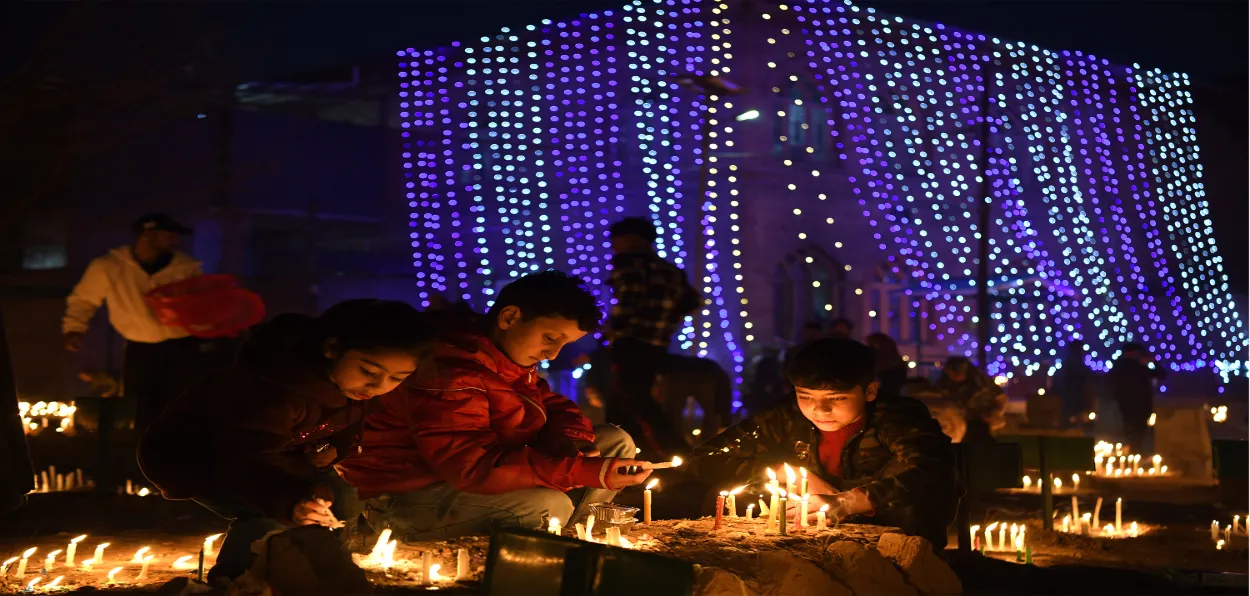
Amir Suhail Wani
Shab-e-Barat, also known as the Night of Bara'at, is a significant and sacred occasion in the Islamic calendar, observed on the 15th night of Sha'ban, the eighth month of the Islamic lunar calendar. It holds spiritual, historical, and cultural importance in Muslim communities around the world. The night is often considered a time for reflection, repentance, and prayer, where Muslims seek forgiveness for their sins and prepare for the upcoming month of Ramadan.
The word "Bara’at" in Arabic translates to "freedom" or "release," and it is believed that on this night, Allah grants freedom from sins and the punishment of Hell to those who seek His mercy with sincerity. Shab-e-Barat is a time for Muslims to purify their hearts and seek divine forgiveness, as it is regarded as a night when Allah is particularly merciful and generous in granting pardon to His servants.
The importance of Shab-e-Barat is evident from its mention in various hadiths. While the night itself is not explicitly mentioned in the Qur’an, several narrations highlight its significance. One of the most famous hadiths about this night is reported by Aisha, who said that the Prophet Muhammad once mentioned that during the night of the 15th of Sha'ban, Allah descends to the lowest heaven and forgives all those who sincerely ask for forgiveness, except for the idolaters and those who harboUr ill feelings towards others.
Another narration indicates that this is the night when Allah decrees the destinies for the coming year, including the life span of individuals, their provisions, and the events that will unfold in their lives. It is on this night that the angels are busy carrying out Allah's orders for the year ahead, making it an auspicious and pivotal moment in the Islamic calendar.
While the Ahadith surrounding Shab I Barat do not mention the specific acts of worship, they emphasize the importance of repenting and seeking forgiveness. The Prophet Muhammad encouraged his followers to engage in extra acts of worship during the night, including offering voluntary prayers (Nafl), reciting the Qur'an, and making heartfelt supplications (Du'a). One of the main spiritual activities of this night is the prayer known as "Salat al-Tasbih," which is a special prayer said to bring great reward and forgiveness. Many Muslims also choose to visit the graves of their loved ones to pray for their souls, asking Allah to grant them peace and forgiveness.
Repentance holds a central place on Shab-e-Barat, as it is believed to be a night of mercy and forgiveness. Muslims reflect on their actions, seek forgiveness for their sins, and commit to lead a better life.
The importance of repentance on this night is rooted in the understanding that Allah’s mercy is boundless and that, through genuine remorse and the intention to improve, a person can be absolved of their past wrongdoings.
It is an opportunity to start anew, with a clean slate, and to approach the coming month of RamaZan with a purified soul.
For Muslims, this night represents an opportunity to renew their connection with Allah and to seek a deeper understanding of their faith. It serves as a reminder of the fleeting nature of time and the importance of using every moment wisely to seek Allah’s mercy. The night is an invitation to draw closer to Allah through acts ofworship, supplication, and remembrance (dhikr). Many Muslims choose to fast on the day of the 15th of Sha'ban, as a means of purifying themselves and preparing for the spiritual discipline required in the coming month of Ramadan.
Historically, Shab-e-Barat has also carried significance in many Muslim communities. In some regions, it is seen as the night when the decrees for the upcoming year are made, and as such, it has become a time for people to offer their prayers for blessings, good health, and prosperity in the months ahead. The night is marked by special prayers, communal gatherings, and remembrance of the deceased, making it not only a time for individual reflection but also for collective solidarity and community bonding.
Culturally, the observance of Shab-e-Barat can vary greatly depending on the region. In some parts of the Muslim world, such as the Indian subcontinent, Southeast Asia, and the Middle East, it is celebrated with elaborate rituals, including the lighting of candles, decorating mosques, and preparing special foods. People often gather in mosques or at home to offer prayers and engage in religious discussions.
In some cultures, families invite one another to share meals after spending the night in worship. The night is also a time for charity, with many people making donations to the poor and helping those in need, as a means of purifying their wealth and gaining the rewards of giving in Allah’s name.
In addition to these practices, the night is also an opportunity for personal introspection. Muslims are encouraged to spend the night in prayer, asking for forgiveness for both major and minor sins, and to reflect on their deeds over the past year. The belief that Shabe-Barat is a night when Allah is especially merciful creates a sense of urgency to make amends, seek forgiveness, and ask for guidance in the coming months.
The night holds profound spiritual, historical, and cultural significance in the lives of Muslims. It is a night that provides an opportunity for self-purification, repentance, and closeness to Allah.
ALSO READ: Shab-e-Barat: Tryst with spirituality and seeking forgiveness from Allah
The importance of this night, as reflected in the Ahadith, emphasizes the boundless mercy of Allah and the potential for forgiveness and transformation. It is a time to seek divine favor, to renew one’s faith, and to prepare spiritually for the holy month of Ramazan. Through prayer, reflection, and acts of charity, Muslims embrace Shab-e-Barat as a means of deepening their relationship with Allah, purifying their souls, and strengthening their commitment to living a righteous life.
